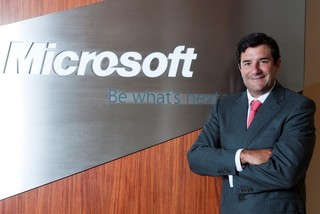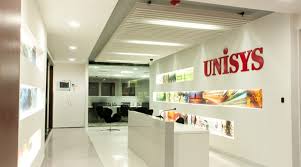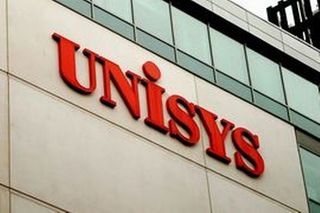Microsoft Outlines Policy and Technical Proposals Aimed at Helping Contain The Spam Problem, Including the Development of Caller ID for E-Mail
Published:
28 February 2004 y., Saturday
In his keynote address at the RSA Conference 2004 today, Microsoft Corp. Chairman and Chief Software Architect Bill Gates announced a detailed vision and proposals on how technology can be used to help put an end to spam, including outlining the company's Coordinated Spam Reduction Initiative (CSRI) and technical specifications for the establishment of Caller ID for E-Mail.
"Spam is our e-mail customers' No. 1 complaint today, and Microsoft is innovating on many different fronts to eradicate it," Gates said. "We believe that Caller ID for E-Mail and the Coordinated Spam Reduction Initiative will help change the economic model for sending spam and put spammers out of business."
To be more effective in the fight against junk e-mail, filters need additional information that is not available in e-mail messages today. Microsoft believes some relatively simple but systemwide changes to the e-mail infrastructure are needed to provide greater certainty about the origin of an e-mail message and to enable legitimate senders to more clearly distinguish themselves from spammers.
Existing spam filters look at an e-mail message's origin to determine whether it is spam. However, there is currently no guarantee that an e-mail message came from whom it says it did. "Spoofing," or sending e-mail purporting to be from someone it's not, is an increasingly common and relatively simple way for spammers to trick filters. In addition, this practice can pose a security risk when used to deliver e-mail viruses.
Microsoft has developed the Caller ID for E-Mail proposal to help eliminate domain spoofing and increase the effectiveness of spam filters by verifying what domain a message came from -- much like how caller ID for telephones shows the phone number of the person calling.
Šaltinis:
microsoft.com
Copying, publishing, announcing any information from the News.lt portal without written permission of News.lt editorial office is prohibited.
The most popular articles
Software company announced new structure_ of it_s business.
more »
 The electronic vignette system in the Slovak Republic has become unique in the world thanks to the speed of implementation and increase in the revenues from the collection carried out by SkyToll a.s. on behalf of the Slovak government.
more »
The electronic vignette system in the Slovak Republic has become unique in the world thanks to the speed of implementation and increase in the revenues from the collection carried out by SkyToll a.s. on behalf of the Slovak government.
more »
 Unisys has promoted Perla Do Amral to a key leadership role, becoming director of service desk operations for the U.S.-based IT company’s managed services centers in Latin America.
more »
Unisys has promoted Perla Do Amral to a key leadership role, becoming director of service desk operations for the U.S.-based IT company’s managed services centers in Latin America.
more »
 Cesar Cernuda is a Microsoft veteran of 19 years, and has served in several senior leadership positions for Microsoft Business Solutions, including overseeing Microsoft’s ERP and CRM business worldwide.
more »
Cesar Cernuda is a Microsoft veteran of 19 years, and has served in several senior leadership positions for Microsoft Business Solutions, including overseeing Microsoft’s ERP and CRM business worldwide.
more »
 Unisys received a contract from NASA Langley Research Center (LaRC) to continue to deliver advanced hardware, software, and systems integration for flight simulation projects at the agency.
more »
Unisys received a contract from NASA Langley Research Center (LaRC) to continue to deliver advanced hardware, software, and systems integration for flight simulation projects at the agency.
more »
 Unisys Corporation reported third quarter 2015 results.
more »
Unisys Corporation reported third quarter 2015 results.
more »
 On the 10th–15th, this September, RAI Exhibition and Congress Centre in Amsterdam will hold the 48th international exhibition-conference dedicated to electronic media and entertainment industry IBC 2015.
more »
On the 10th–15th, this September, RAI Exhibition and Congress Centre in Amsterdam will hold the 48th international exhibition-conference dedicated to electronic media and entertainment industry IBC 2015.
more »
 Unisys Corporation announced the completion of the initial phase of testing of a facial recognition system at Dulles International Airport, Virginia, to help Customs and Border Protection (CBP) to identify imposters attempting to enter the United States using passports that are fraudulent or do not belong to them.
more »
Unisys Corporation announced the completion of the initial phase of testing of a facial recognition system at Dulles International Airport, Virginia, to help Customs and Border Protection (CBP) to identify imposters attempting to enter the United States using passports that are fraudulent or do not belong to them.
more »
 Television was invented back in 1884, when German Paul Gottlieb Nipkow came up with the idea to scan images using a rotating metal disc with a spiral pattern of holes in it. When the disc was spinning, each hole would scan one brightly lit line of the image.
more »
Television was invented back in 1884, when German Paul Gottlieb Nipkow came up with the idea to scan images using a rotating metal disc with a spiral pattern of holes in it. When the disc was spinning, each hole would scan one brightly lit line of the image.
more »
 SuperCom, a leading provider of secure solutions for e-Government, Public Safety, HealthCare, and Finance sectors, announced its results for the quarter ended March 31, 2015.
more »
SuperCom, a leading provider of secure solutions for e-Government, Public Safety, HealthCare, and Finance sectors, announced its results for the quarter ended March 31, 2015.
more »
 Unisys Corporation today announced that Tom Patterson has joined the company as vice president for global security solutions, responsible for leading Unisys' security solutions business worldwide.
more »
Unisys Corporation today announced that Tom Patterson has joined the company as vice president for global security solutions, responsible for leading Unisys' security solutions business worldwide.
more »